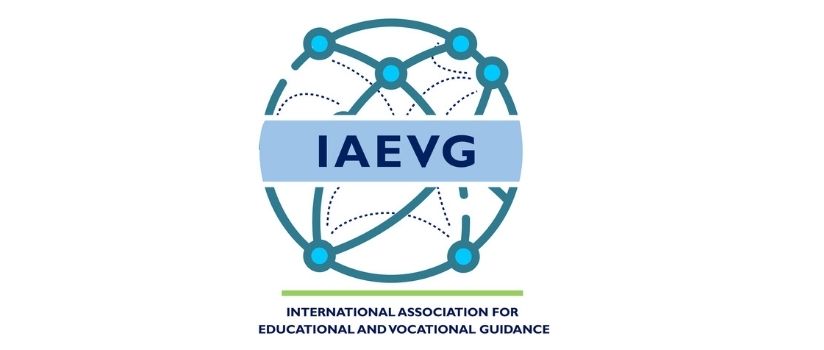Van Brussel holds a Master's degree in Psychology and a PhD in Human Resources Management. He has over 40 years of experience in the professional guidance and development in various roles and positions: researcher, speaker, lecturer and author of various books, research projects and articles on guidance. He also works as a lecturer and thesis supervisor for students at Open University of the Netherlands.
IAEVG celebrate 70 years in 2021. What are the main achievements of the association during this time?
Being at service for 70 years for the guidance community with members on all continents, communicating in four languages as a truly global association. Creating meaningful resources for the membership, such as ethical guidelines, and international competences for guidance practitioners.
How many members does the association currently have and what is the main profile of its associates?
About 150 members. About 100 individuals, 25 national and regional Associations and 25 research institutes or educational organisations. Including members represented by associations and institutes we currently have about 15.000 practitioners, researchers, educators, and policymakers that join our network worldwide.
What presence do young professionals have in the association? What actions are you taking to attract more young guidance professionals?
We are currently working on establishing new member categories. One will be Young Professionals. They will pay a special membership fee. Of course, we should tailorize our services and events to this member category.
How has the pandemic influenced the objectives and activities of the association?
We developed and delivered more online events, such as webinars. Two in Spanish language in the past year. Those events were closely related to the consequences of Covid 19. Also, we had our first virtual International Conference. We had to postpone our Conference in 2020 to 2021 last October and transform the whole event in a virtual one, it was an enormous challenge. In this way we could reach more participants in more regions of the world. However, we could not relate in a person to person missing a high touch contact and having a high-tech meeting instead.
How was the experience of organise a virtual international conference? Are you planning to hold the next conferences in this format or in a hybrid one? Why?
It was a big challenge to transform the event in a virtual online one. With all technological, it- issues that had to be solved. The organisers in Riga did a great job.
The format that was presented had a broad variety of paper sessions, chat rooms, panel sessions, etc. The way of communicating and interaction is lacking the personal touch of course. We all miss the vibrant atmosphere when people meet in person. So, it is amazing both a bit ‘cold' at the same time, is my personal experience.
The next IAEVG Conference will be a joint venture with Asia Pacific Career Development Association (APCDA), a regional member, in Singapore. It is planned to by hybrid because we hope that next May a part of the participants can safely join in person, but we also estimate a bigger part can't.
We also think that we learned from the way we must operate since the pandemic that now ‘everyone' can join a conference because is much cheaper to log in than to travel.
What are the main conclusions of the conference, whose theme has been "Maximizing the potential of career guidance"?
Maximizing the potential of guidance supposes, having the right opportunities and capacity. In other words, the circumstances and resources should facilitate the process of maximizing. Tailorizing career guidance to the specific circumstance of clients is crucial and the context differs, sometimes enormous, across borders and between categories of people. The most striking between the Northern and Southern hemisphere of the globe as Dr. Pillay from South Africa one of the keynoters at the Riga Conference stipulated. It is evident that our Western and Northern hemisphere guidance methods and instruments don't fit the cultural context of colleagues in many other parts of the world, but also not their capacity in terms of resources, financial, technological, etc. In the North we are expanding and innovating our online methods for guidance, while for instance African people don't have a computer of a laptop at all. But they often do possess a smart phone. They now need apps instead of sophisticated platforms.
The significance of career guidance has never been more visible than at this point in history. The vulnerabilities of many groups, such as the poor, the disabled and those in peripheral regions, has become even more severe due to the impact of COVID-19. And many new groups are facing new challenges due to digitization, isolation, and structural change – working parents, school-age children, recent graduates. What is encouraging is that guidance practitioners and researchers have not lost hope, but are strongly motivated to find new solutions, share insights and support both their clients and their colleagues in finding a viable way out.
The mission of IAEVG is to lead, but to lead is to make people work together, not to be ahead, but to be with national associations, communities, and individual professionals. We can bring together a lot of ideas and make new ones through hybridization. This is a role only an international organisation can take on.
Career readiness for youngsters was a hot item as well as career uncertainty for young people and adults not only for research but also for practice. IAEVG participated in an international widespread survey and comparative study executed by OECD. This study sheds light on the effectiveness and maximizing the potential of educational guidance, focused on future careers of youngsters and underline the necessity to accelerate actions and a greater engagement of employers.
Is career guidance more important than ever after pandemic? Why?
Yes, I am sure it is! The social and economic consequences of the pandemic are enormous. It is even more evident that we must deal with a global, interdependent economic system. And we even don't know exactly what is ahead of us. Many people have lost their job and income, but we also see shortages of in some sector of the labour market. This requires creative solutions and in particular intensive career guidance and support. Youngsters should be intensively prepared to manage their future careers with flexibility, employability, and resilience.
Politicians and governments should be aware that career guidance is much more than assisting people in preparing their future work life, but very important instrument for leveraging the social economic development of a country, region, or city.
What are the emerging trends in the practice of academic and career guidance?
Just to mention a few.
- Of course, the development and application of ICT-based tools and methods for educational, vocational and career guidance to reach more clients in an efficient way. The pandemic forced us all to find more ways to connect on distance. I notice all kinds of initiatives to accelerate the development of tools and techniques for guidance practice, but also to educate practitioners in new online based methods and the skills needed to manage these.
- Sustainable career development and employability are goals for practice of career development. Lifelong guidance and development are already trends for several years in Western, industrialised countries. Sustainable careers and livelihood suppose a real challenge for developing Southern hemisphere countries. Investing in the employability of people is beneficial for employees, unemployed people and employers and governments as well.
- Looking at the summit in Glasgow, we see a growing interest for green jobs creating new job openings. Although the climate crises and the pandemic lead to all kinds of negative consequences, even other crises, we also see new opportunities. Green jobs that are and will be created as answers of climate adaption and climate control measures are.
What are the association's priorities in the new economic and social context caused by the pandemic?
To reach out more intensively to the membership but also to those who aspire to become members. We are putting extra effort in reaching out to developing countries where guidance is sometimes still in a starting phase. Since 2021 we have integrated a tiered fees system meaning that the annual fee for developing countries is lower in some case much lower. This also helps to practice one of our core values: social justice.
We are also working on expanding our Professional Development services for our membership based on a member survey that was launched recently.
You changed recently the IAEVG logo. Why? Is this change related with your priorities in the post-pandemic time?
The new logo is a first step in a more pertinent marketing and promotion campaign. We started the logo-renewal project before the pandemic ambushed us all. We needed a timelier and fresher logo maintaining the globe symbol, but also articulating communication, connection, and cooperation in our global IAEVG community. The new logo was adopted by the General Assembly last October.






